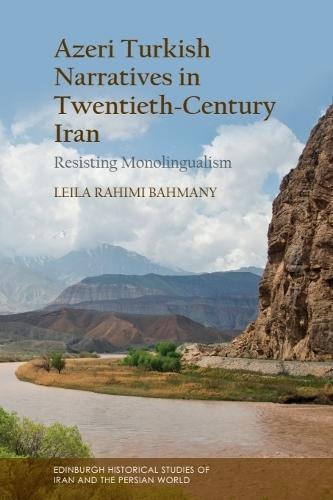Overview
Modern Azeri Turkish prose narratives emerged towards the end of the Second World War, a period marked by the rise of multiple hostile ideological trends including Aryanism, centralism, nationalism and archaism all seeking to eradicate the Azeri Turkish language. Azeri Turkish was framed as a linguistic threat to be eliminated as monolingualism, seen as a prerequisite for a unified nation-state, became one of the main state projects of the Pahlavis in their attempt to create a homogenised, Persianised Aryan nation. Yet, despite a century of systematic Persianisation, literature in Azeri Turkish not only endured but continues to thrive in Iran to this day. This book introduces short stories, novels and memoirs in Azeri Turkish from the 1940s to the end of the twentieth century, situating them within the historical and political events of the time, from the rise of the Azerbaijan People's Government to the Iranian Revolution and beyond. It analyses the author's engagement with the questions of forced monolingualism, institutionalised assimilation policies and centreperiphery relations, revealing the dissident nature of this minority literature. It shows how the persistent marginalisation of Azeri Turkish literature, along with the constant revisitation of the region's dark historical periods, has shaped much of this literature as trauma narratives. Finally, it advocates for vitalising Iranian literary studies by embracing linguistic and cultural diversity.
Full Product Details
Author: Leila Rahimi Bahmany (Post-Doctorate Researcher, Utrecht University)
Publisher: Edinburgh University Press
Imprint: Edinburgh University Press
ISBN: 9781399550833
ISBN 10: 1399550837
Pages: 440
Publication Date: 30 September 2025
Audience:
College/higher education
,
Postgraduate, Research & Scholarly
Format: Hardback
Publisher's Status: Active
Availability: Not yet available

This item is yet to be released. You can pre-order this item and we will dispatch it to you upon its release.
Reviews
In this carefully researched and well-written study, Leila Rahimi Bahmany reveals the complex history of twentieth-century Azeri Turkish writing, showing how the Soviet occupation of Iranian Azerbaijan opened up new possibilities for the expression of individual and collective identity. Azeri Turkish Narratives in Twentieth-Century Iran will be of value to specialists in Middle Eastern Studies, illuminating the interplay of monolingualism and plurilingualism; to students of World Literature, highlighting the role of so-called 'minor literatures'; and to anyone sensitive to the intense and often fraught relationship of national identity and language. -- Suzanne Conklin Akbari, Institute for Advanced Study Leila Rahimi Bahmany's pioneering study will open readers' eyes to the narratives of those who dared to resist Persian monolingualism by writing in Azeri Turkish in 20th-century Iran; it reveals the complexities of Azerbaijani identity juxtaposed with Iranian national identity and the Persian national language and master literature. -- Edmund Herzig, University of Oxford
Author Information
Leila Rahimi Bahmany is a Guest Professor at Ludwig Maximilian University of Munich. She earned her doctorate from the Free University of Berlin, specialising in modern literature of Iran and comparative literature. Her first book, Mirrors of Entrapment and Emancipation: Forugh Farrokhzad and Sylvia Plath (Leiden University Press, 2015) received the Latfifeh Yarshater Award.



